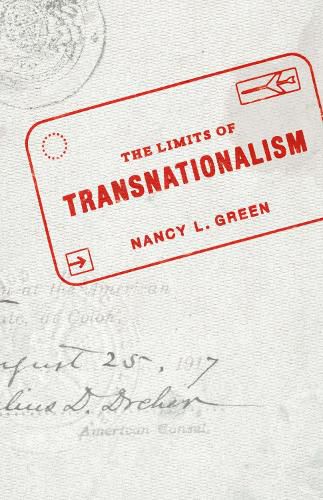Readings Newsletter
Become a Readings Member to make your shopping experience even easier.
Sign in or sign up for free!
You’re not far away from qualifying for FREE standard shipping within Australia
You’ve qualified for FREE standard shipping within Australia
The cart is loading…






Transnationalism means many things to many people, from crossing physical borders to crossing intellectual ones. The Limits of Transnationalism reassesses the overly optimistic narratives often associated with this malleable term, revealing both the metaphorical and very real obstacles for transnational mobility. Nancy L. Green begins her wide-ranging examination with the story of Frank Gueydan, an early twentieth-century American convicted of manufacturing fake wine in France who complained bitterly that he was neither able to get a fair trial there nor to enlist the help of US officials. Gueydan’s predicament opens the door for a series of inquiries into the past twenty-five years of transnational scholarship, raising questions about the weaknesses of global networks and the slippery nature of citizenship ties for those who try to live transnational lives. The Limits of Transnationalism serves as a cogent reminder of this topic’s complexity, calling for greater attention to be paid to the many bumps in the road.
$9.00 standard shipping within Australia
FREE standard shipping within Australia for orders over $100.00
Express & International shipping calculated at checkout
Transnationalism means many things to many people, from crossing physical borders to crossing intellectual ones. The Limits of Transnationalism reassesses the overly optimistic narratives often associated with this malleable term, revealing both the metaphorical and very real obstacles for transnational mobility. Nancy L. Green begins her wide-ranging examination with the story of Frank Gueydan, an early twentieth-century American convicted of manufacturing fake wine in France who complained bitterly that he was neither able to get a fair trial there nor to enlist the help of US officials. Gueydan’s predicament opens the door for a series of inquiries into the past twenty-five years of transnational scholarship, raising questions about the weaknesses of global networks and the slippery nature of citizenship ties for those who try to live transnational lives. The Limits of Transnationalism serves as a cogent reminder of this topic’s complexity, calling for greater attention to be paid to the many bumps in the road.